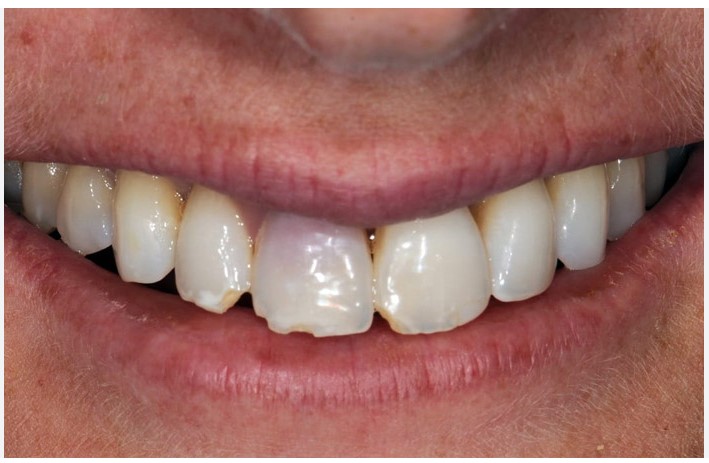
Chipped teeth are a common dental issue that can occur due to a variety of causes. It can be caused by trauma, such as a fall or a blow to the face, or by biting down on something hard. It can also be caused by tooth decay or grinding your teeth. Treatment for a chipped tooth depends on the severity of the chip and can range from a simple filling to a more complex procedure such as a crown or veneer. Prevention is key when it comes to chipped teeth, and there are several steps you can take to reduce your risk. This article will discuss the causes, treatment, and prevention tips for chipped teeth.
What Causes a Chipped Tooth and How Can You Prevent It?
A chipped tooth is a common dental issue that can be caused by a variety of factors. The most common causes of a chipped tooth are trauma, such as a blow to the face, or biting down on something hard. Other causes include tooth decay, grinding or clenching of the teeth, and dental procedures.
To prevent a chipped tooth, it is important to practice good oral hygiene. This includes brushing and flossing your teeth twice a day, using a fluoride toothpaste, and visiting your dentist regularly for check-ups and cleanings. Additionally, it is important to wear a mouthguard when playing contact sports or engaging in activities that could cause trauma to the face.
It is also important to avoid chewing on hard objects, such as ice, hard candy, or pens. If you grind or clench your teeth, it is important to speak to your dentist about getting a night guard to protect your teeth. Finally, it is important to be mindful of the foods and drinks you consume, as acidic foods and drinks can weaken the enamel of your teeth and make them more prone to chipping.
How to Treat a Chipped Tooth: A Guide to Different Options
Having a chipped tooth can be a painful and embarrassing experience. Fortunately, there are a variety of treatments available to help restore your smile. This guide will provide an overview of the different options available to treat a chipped tooth.
The first step in treating a chipped tooth is to visit your dentist. Your dentist will be able to assess the extent of the damage and recommend the best course of action. Depending on the severity of the chip, your dentist may recommend one of the following treatments:
Bonding: Bonding is a procedure in which a tooth-colored composite resin is applied to the chipped area. The resin is then hardened with a special light and shaped to match the surrounding teeth. Bonding is a relatively quick and painless procedure and can be completed in one visit.
Veneers: Veneers are thin shells of porcelain that are bonded to the front of the teeth. Veneers can be used to cover up chips and other imperfections. Veneers are more expensive than bonding, but they are also more durable and can last up to 10 years.
Crowns: Crowns are caps that are placed over the entire tooth. Crowns can be used to restore a chipped tooth to its original shape and size. Crowns are more expensive than bonding or veneers, but they are also more durable and can last up to 15 years.
Root Canal: In some cases, a root canal may be necessary to treat a chipped tooth. During a root canal, the dentist will remove the damaged pulp from the center of the tooth and replace it with a filling material. Root canals are more invasive than other treatments, but they can help to restore the tooth to its original shape and size.
No matter which treatment you choose, it is important to take good care of your teeth to prevent further damage. Be sure to brush and floss regularly and visit your dentist for regular check-ups. With proper care, your chipped tooth can be restored to its original beauty.
Conclusion
Chipped teeth can be a painful and embarrassing experience, but with proper care and prevention, they can be avoided. Regular dental checkups and good oral hygiene are the best ways to prevent chipped teeth. If a chipped tooth does occur, it is important to seek treatment from a dentist as soon as possible. Treatment options vary depending on the severity of the chip, but may include bonding, veneers, crowns, or even root canals. With the right care and prevention, chipped teeth can be avoided and treated.